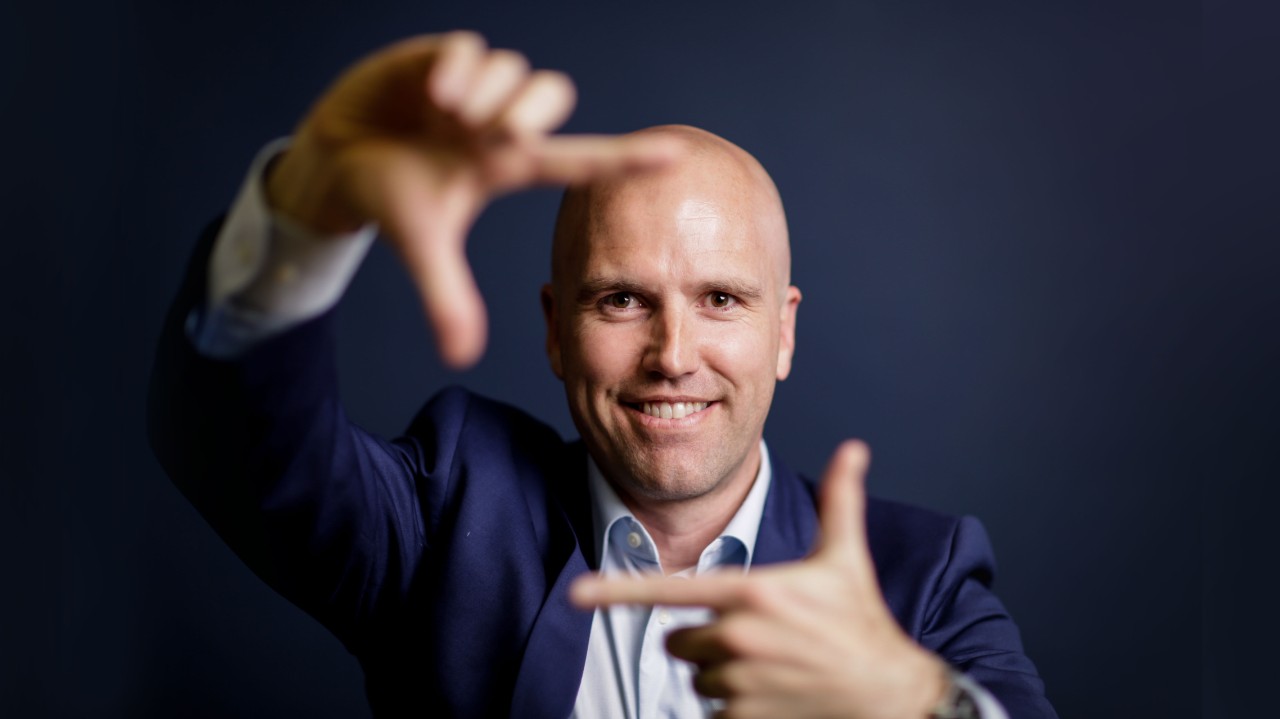
It took Mark McCardle FCCA, international CFO at the tech giant Adobe, the best part of 10 years to fully appreciate the impact that an accountancy qualification had made to his leadership style and career.
By admission, he left university ‘starry-eyed’ about a career in banking – ‘it was the go-to industry at the time; global, dynamic, lucrative, all the things you dream about as a late teenager’ – but the reality was underwhelming.
‘I quickly realised that you are just a cog in the machine and that your influence on any material outcome is very small,’ he says. ‘There was very little connection to the product or customers. I wanted to create, innovate, produce something.’
‘I found that I thrive on disruption. Life’s boring when it stops’
Adobe in numbers
US$12.87bn
Revenue in 2020 (year end 30 November)
15.2%
Revenue growth from 2019
250 billion
PDFs opened in Adobe products in 2020
26%
Revenue year-on-year growth for Q1 2021 (US$3.91bn)
Twenty years later, McCardle is the most senior finance professional outside the US at Adobe, part of a multi-billion-dollar business that is growing at a rate of more than 15% a year. Despite joining mid-pandemic (after a recruitment process that involved 10 interviews and pitched him against ‘many of the large software company CFOs’), it is a role that has more than lived up to expectations.
‘It’s been fantastic; it’s one of the best companies in the world,’ he says. ‘We have 25,000 employees and are worth a quarter of a trillion dollars on a good day. The CEO is one of the most impressive people I’ve ever met. I feel privileged to have had the experience of working with him and learning so much about how pioneering companies can create great outcomes for customers.’
Turning point
That McCardle is where he is today he credits largely to ACCA. After moving to Aberdeen for family reasons in 2004, he found himself working for an asset management company and made the decision to study with ACCA.
In rural Scotland with three small children, McCardle did his coursework in the evenings and on weekends. ‘I’m not a lock-yourself-away-and-learn sort of person, but it was a great thing to do,’ he says.
‘ACCA opened up how a business worked – I could see the complete architecture for the first time – and it’s given me a platform way beyond accounting itself. It was a massive turning point. I see my career in terms of life before qualification and life after.’
From deep-sea to cloud
After the global financial crisis, McCardle stepped away from financial services and into Aberdeen’s booming oil industry, joining Subsea 7, an underwater construction company serving the oil and gas sector.
‘That blew my career wide open,’ he says. ‘It was my first leadership role, my first opportunity to manage a global team, with people in Australia, Texas, Brazil and the UK. And I used my full range of skills, including commercial pricing, FP&A and forecasting. It was a complete game changer.’
‘Technology has taken over from banking as the go-to industry for finance people. It’s not even a sector any more’

And, of course, it was a business that built things – in Subsea 7’s case, massive infrastructure for use in increasingly inaccessible parts of the planet.
‘You have to drill deeper and deeper and in more and more bizarre places these days in order to find oil,’ McCardle says. ‘While I was there, we worked on a huge contract in Brazil, installing an underwater valve system. It was the size of a football pitch and they towed it out to sea and then submerged it vertically. I remember watching it; it was fascinating and such an innovative way to solve challenges.’
Thriving on disruption
The job also provided his first taste of disruption – to become a theme in his career – when Subsea 7 merged with Acergy in 2010. ‘That was hugely disruptive,’ McCardle recalls, ‘but I found that I thrive on it. Life’s boring when it stops.’
In 2011, the opportunity came up to join Rackspace Technology, a Texas-based cloud solutions provider that had completed its initial public offering in New York three years earlier. It was, he acknowledges, a huge risk.
‘I’d never heard of them and it was, effectively, a start-up at that stage – the cloud was still a new idea and Rackspace was an early adopter. Amazon and Google were already commoditising the cloud industry, so there was a lot of pressure on us to maintain growth.’
‘When the world is on fire around you, ACCA comes in and applies calm, structure, diligence and control’
CV
2020
International CFO, Adobe
2019
Head of global FP&A, Prosus Group, Netherlands
2014
Senior director of finance, Rackspace Technology
2011
Global finance director, Subsea7
2005
Finance director, AGG Asset Management
2002
Financial controller, Perry Capital
2000
Risk and control analyst, JP Morgan
The company was doubling in size every year, and the speed of growth led to control challenges.
‘Business was growing so fast that the company couldn’t keep up,’ McCardle recalls. ‘That often happens in the tech world: people rarely know how to build a strong business behind their dream.
‘They needed people to come in and put in place policies, structure and governance. That’s what ACCA does so well – when the world is on fire around you, it comes in and applies calm, structure, diligence and control.’
McCardle and his team spent a year restructuring the accounting division, creating centres of excellence, segregation of duties, layers and controls, and a clear career development path for finance professionals in the business.
‘The challenge was making the company roadworthy while simultaneously getting buy-in from the people there, the ones who were riding the rollercoaster,' he recalls.
'They hired me to bring structure, but they also needed someone who was a good cultural fit who would buy into change and convince the people around them.’
Function builder
McCardle was then asked to go to Switzerland to help set up the company’s international headquarters. ‘I loved it. Zurich was a great place to live, and we were building reporting lines and governance around the new structure,’ he says. ‘We created a whole new international leadership structure, with substance and governance. It was a once-in-a-lifetime opportunity to build an executive function.’
In 2016, Rackspace was sold to Apollo Global Management for US$4.3bn, delisted and then relisted a couple of years later. ‘There was a lot to deal with and nothing teaches you more in life than disruption,’ McCardle says.
The chance to join Adobe came after an 18-month spell in a global technology investor, Prosus Group, in Amsterdam. ‘The opportunity to join Adobe was in my sweet spot,’ he recalls. ‘The role was international CFO, which I had stepped out of at Rackspace, and it was an opportunity to come back to the UK and apply what I’d learnt to a progressive business like Adobe,’ he says.
‘Technology has taken over from banking as the go-to industry for finance people. It’s not even a sector any more – tech is in everything we do.’
Transformation and opportunity
McCardle’s role at Adobe is, he says, the furthest removed he has ever been from pure accounting. ‘Everything I do is commercial – deal support, pricing, forecasting, assessment of markets. Day to day I don’t focus much on pure accounting, but I can pivot if I need to.’
Disruption, he points out, is a constant in Adobe’s business – and, at the moment, in most sectors. ‘Historically, disruption causes contraction of activity, but at the moment disruption is the norm due to businesses reacting to the ever changing circumstances around us,’ McCardle says.
‘Disruption brings opportunity. And our selling point is transformation. Transforming your business digitally used to be a "nice to have" – now you need to do it to survive.’
The decision that unlocked massive growth at Adobe was the move to a cloud-based service in 2012, led by its CEO Shantanu Narayen, that would allow it to sell its Creative Cloud services on subscription.
‘Technology has taken over from banking as the go-to industry for finance people’
Adobe was by no means the first – as early as 2007, global revenue from software-as-a-service enterprise apps stood at around US$5bn – but it was an early mover and its transformation was so successful that it is used widely as a case study, notably by the Harvard Business Review.
Revenues quickly took off – 86% of the company’s revenues were coming from subscription by 2017 – rising from US$4bn in 2013 to almost $13bn in 2020. The company is expected to break through the US$15bn annual revenue barrier when its 2021 full-year results are released.
Crowded market
The company has three main product lines. Adobe Creative Cloud, its software suite for creative purposes, is its big success and its dominant market – more than 90% of the world’s creative professionals use it.
Adobe Document Cloud, which includes PDF Reader and Adobe Sign, is solid and growing but has strong competitors. A key focus for future business potential is Adobe Experience Cloud, a suite of enterprise software including analytical, marketing and customer relationship management tools.
‘Businesses previously saw digital transformation as a luxury; now it’s a necessity to keep up with the competition’
Enterprise software is a large and competitive market, with a complex and lengthy sales cycle, and Adobe plays alongside other giants of the trade, such as SAP, Salesforce and Oracle. ‘It’s a tougher sell,’ says McCardle.
The future success of Experience Cloud depends on people’s ability and capacity to spend. ‘That’s our biggest challenge,’ says McCardle. ‘Budget constraints are the worst they’ve been since the global financial crisis. For businesses that haven’t embraced digital transformation up to now, many are having to restructure in order to be able to afford to do so. Businesses previously saw digital transformation as a luxury; now it’s a necessity to keep up with the competition.’
Where Adobe thrives is in helping companies build their transformational vision. ‘We partner with our customers as they map out their digital roadmap, alongside key stakeholders including CEOs, CIOs, CTOs and CDOs,’ McCardle says.
‘We need pioneering businesses that see the future. The key success lies in transcending a cost-cutting, procurement-focused, narrow-minded and short-term approach to open up an innovative, progressive and creative path to growing their businesses.’
Given Adobe’s rich history of success, the odds look to be in the company’s favour to lead the way in whatever disruption the future brings.




